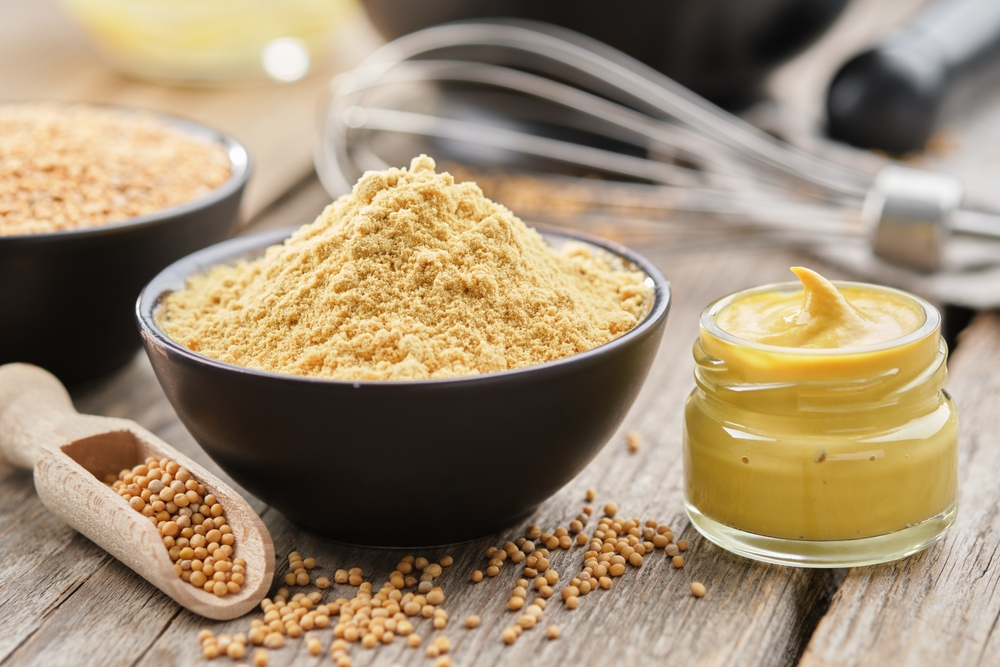A cat sneaking a approach of the turkey sandwich you by probability left on the counter can seem harmless until you concentrate on the complete factor that’s maybe in it. Whereas many toppings like lettuce or mayo may also be protected for cats to eat reasonably, mustard could set off parts significantly in giant components, making it unsuitable in your pet’s meals plan.
It would sound uncommon that an typically meal addition like mustard would possibly presumably be palatable for individuals nonetheless problematic for cats, nonetheless it is merely one amongst pretty a variety of examples of protected human meals that may harm our pets. Let’s uncover the extent of the issues involved on this rationalization of why cats can’t eat mustard.
Why Can’t Cats Eat Mustard?
The first parts in most mustard kinds are vinegar (distilled or apple cider vinegar) and mustard seed. Whereas every are essential in creating mustard’s distinct kind, they will moreover work collectively to trouble your cat’s digestive system. Add just some marginal nonetheless terribly toxic spices, along with garlic and onion powder, and we now have now all the makings for a poor experience.
All mustard varieties embrace mustard seed (normally flooring into mustard powder), with different types together with distinctive coloration and elegance to each mustard mannequin. Yellow mustard seeds and powder give typical yellow mustard its comparatively gentle kind, whereas maybe principally in all probability essentially the most intense brown mustard seeds give brown and Dijon varieties their signature spicy kick.
Gastrointestinal Upset
Vinegar and mustard seeds in desk mustard aren’t primarily toxic to cats, nonetheless they will have antagonistic outcomes when your pet eats them in extra. Although vinegar might have some benefits, the acidity would possibly set off an upset stomach.
Likewise, some compounds in mustard seed can promote oral and gastrointestinal parts, though mustard is unlikely to set off lasting harm. When cats eat larger than a lick of mustard, it’d set off quick indicators of gastroenteritis, paying homage to:
- Excessive drooling
- Vomiting
- Diarrhea
- Stomach ache
- Lack of urge for meals
Dry mustard powder is usually used to induce vomiting in pets, though it isn’t advisable. Veterinarians diploma out that this and a substantial amount of utterly utterly completely different residence cures (e.g., liquid dish cleansing cleaning cleansing cleaning soap, scorching sauce) are usually contraindicated, as safer, heaps so much a lot much less aggressive, and extra reliable selections is also discovered. In no way induce vomiting at residence with out supervision of a vet.
Mustard Seed Compounds
The compound that gives mustard its pungent aroma and sharp kind is allyl isothiocyanate. Its off-putting vogue is a safety mechanism to protect the plant from herbivores. Earlier mustard seed, this compound is plentiful in equally spicy vegetation like horseradish and wasabi.
Fortunately, mustard seed’s repellency is generally environment nice in opposition to many animals. Alongside the acrid vogue of vinegar in mustard, the flavour normally retains cats from consuming one issue larger than a small vogue if it doesn’t deter them completely.


Further Toxic Components
Although many frequent mustard spices like turmeric and paprika obtained’t harm a cat, the garlic and onion powder that mustard normally comprises are terribly toxic to cats, even in small components. Garlic, onion, and utterly utterly completely different Alliums are among the many many many many prime toxins for cats in typically meals.

